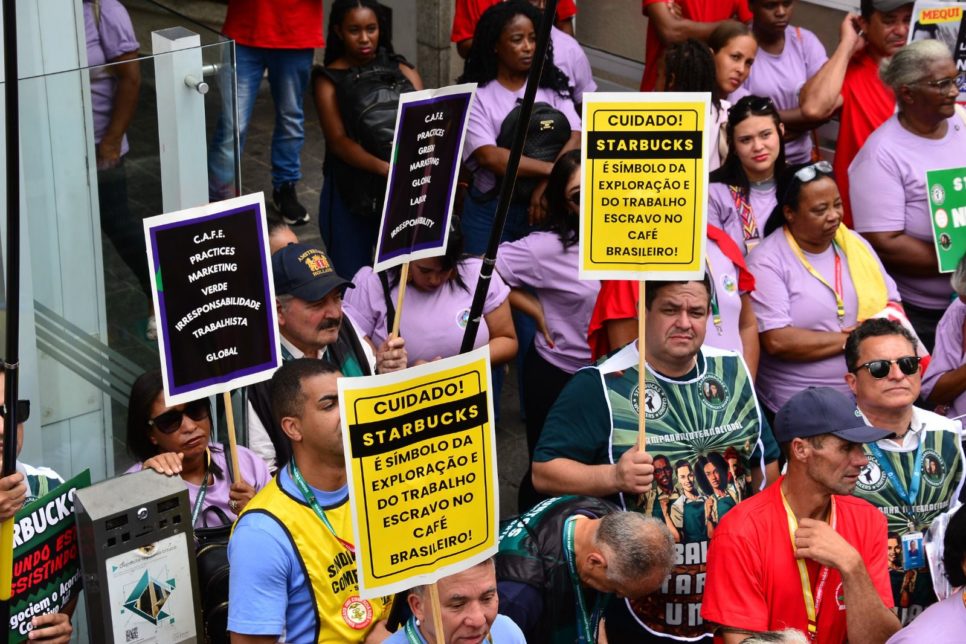UN warns of “alarming torture” in Brazil
Report presented today denounces state violence against minority groups in the country
 Juan Ernesto Mendez, Special Rapporteur on Torture and other cruel, inhuman or degrading treatment or punishment addresses during the 16th Session of the Council of Human Rights.
Juan Ernesto Mendez, Special Rapporteur on Torture and other cruel, inhuman or degrading treatment or punishment addresses during the 16th Session of the Council of Human Rights.
The UN special rapporteur on torture, the Argentine Juan Méndez, said today at the 31st session of the UN Human Rights Council in Geneva that impunity in cases of torture by government agents in Brazil “is still the rule, not the exception”, particularly when the target is prisoners and minority groups. The speech marked the official presentation of the report released by the office of the rapporteur last week on the state of the Brazilian prison system.
- Click here to read the full report by Juan Méndez on Brazilian prisons.
“Torture and mistreatment by police and prison staff is still alarming and a regular occurrence, mainly against persons belonging to racial, sexual, gender and other minority groups,” said the rapporteur. “I urge the Brazilian government to take steps to close the gap between the country’s ambitious laws and policies on the one hand, and the everyday situation of people deprived of their liberty on the other.”
_______________________________________________________________________________
Read more
________________________________________________________________________________
Rogerio Sottili, special secretary of human rights at the Ministry of Women, Racial Equality and Human Rights, represented Brazil at the meeting. He welcomed the report and the joint efforts by international organizations and States to make headway in guaranteeing rights, and acknowledged that “there are many fields in which we still need to make progress”. “Obviously, we are not going to change a 500-year culture of violence overnight. But I am convinced that we are starting to transform this culture of discrimination and violence into a culture of rights,” he said.
As an example of the progress, he mentioned the creation of the National System to Combat and Prevent Torture and the pilot project of the CNJ (National Justice Council) to hold detention hearings, which ensures that offenders arrested in flagrante are presented before a judge within 24 hours.
Click here to read the statement made by Rogerio Sottili. Click here to read the considerations made by the Brazilian government on the report of Juan Méndez.
The conclusions of Méndez will be endorsed by Conectas Human Rights and by ABGLT (Brazilian Association of Gays, Lesbians and Transgender People). In an oral statement scheduled for tomorrow at 5 am (Brasília time), the organizations will stress the importance of reviewing the current drug law, which is responsible for the incarceration of a quarter of the Brazilian prison population, and they will request a commitment from the government to ending abusive searches of people who visit their loved ones in prison and to creating state-level mechanisms to combat and prevent torture similar to the one that already exists on the federal level.
Additionally, the organizations will emphasize the violence suffered by the LGBT community at the hands of the police and prison guards – another point raised in the report by Méndez. The organizations will also demand proper training for police and prison guards on gender and racial diversity and the approval of Bill 7764/2014, which bans abusive searches throughout the country.
Click here to read the statement to be given by Conectas and ABGLT.
________________________________________________________________________________
Watch the speech by the organizations:
____________________________________________________________________
The data presented by Méndez were gathered during a 12-day visit to the country in August 2015. It was the first mission to Brazil by the office of the rapporteur in 15 years. The expert’s visit to four states (Alagoas, Sergipe, São Paulo and Maranhão) and the Federal District was motivated by a complaint filed by NGOs to the Human Rights Council in 2014 on the violence in the Pedrinhas prison complex, in Maranhão.
This was the only prison to be given its own section in the report. In spite of acknowledging a significant drop in the number of killings there (between February 2013 and February 2014 there were more than 60), Méndez stated that the detention conditions remain “explosive”.
Last week, Conectas, Justiça Global, SDHM (Maranhão Society of Human Rights) and OAB-MA (State Bar of Maranhão) published a new report detailing the problems and abuses committed in Pedrinhas. The document shows that Brazil has failed to comply with the precautionary and provisional measures issued, respectively, by the Inter-American Commission and the Inter-American Court of Human Rights of the OAS (Organization of American States).
- Click here to read the full report on Pedrinhas prison.
There are currently more than 600,000 people in prison in Brazil – a population higher than some state capitals such as Cuiabá and Porto Velho. Of the countries with the world’s largest prison populations, Brazil is the only one whose incarceration rate (number of people in prison per 100,000 inhabitants, currently at 299.7), has been rising. The shortfall in prison places caused by the policy exceeds 330,000. According to data from 2014 from the Ministry of Justice, 41% of the prison population are pre-trial detainees.






